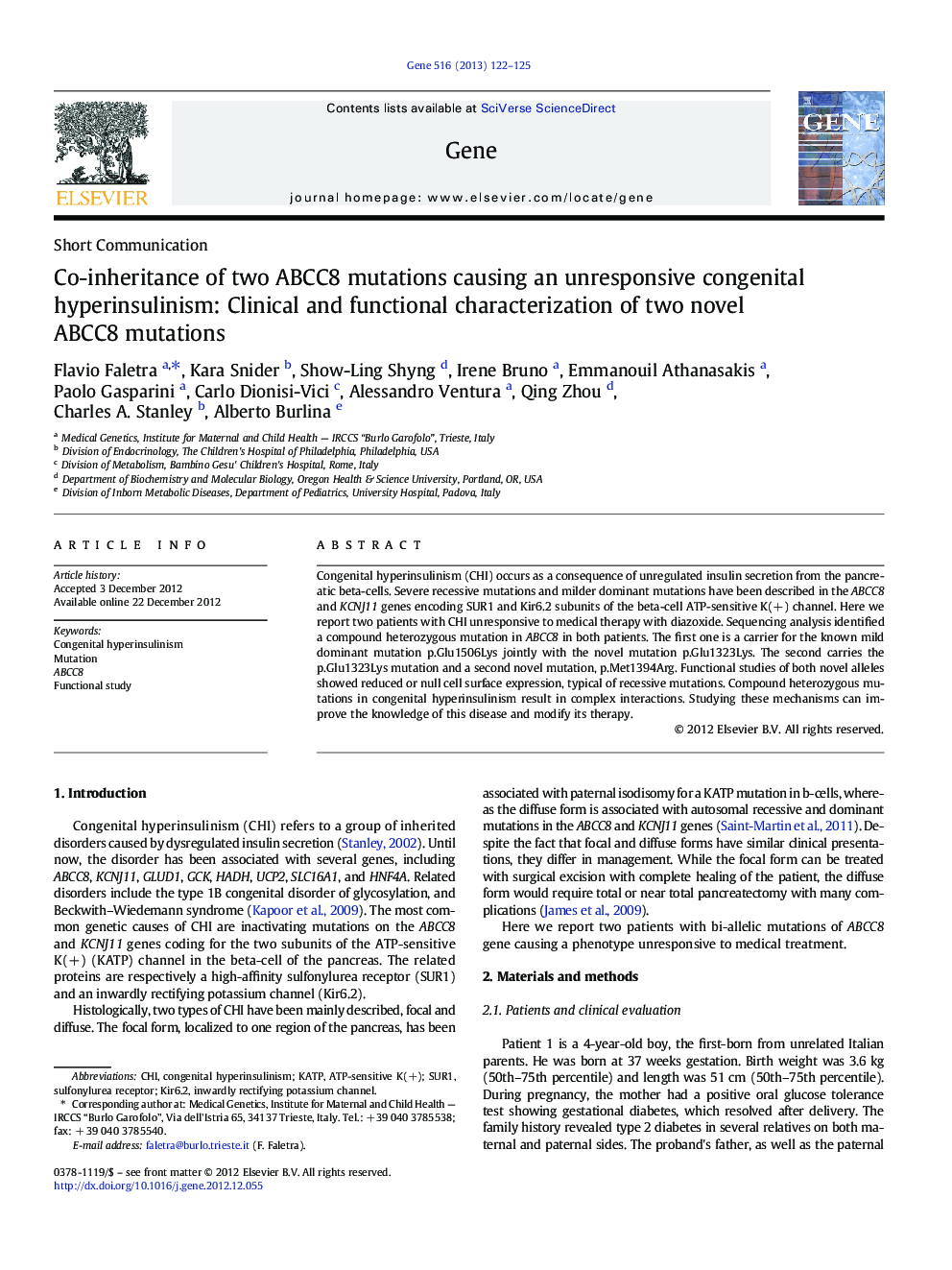| Article ID | Journal | Published Year | Pages | File Type |
|---|---|---|---|---|
| 5906764 | Gene | 2013 | 4 Pages |
Congenital hyperinsulinism (CHI) occurs as a consequence of unregulated insulin secretion from the pancreatic beta-cells. Severe recessive mutations and milder dominant mutations have been described in the ABCC8 and KCNJ11 genes encoding SUR1 and Kir6.2 subunits of the beta-cell ATP-sensitive K(+) channel. Here we report two patients with CHI unresponsive to medical therapy with diazoxide. Sequencing analysis identified a compound heterozygous mutation in ABCC8 in both patients. The first one is a carrier for the known mild dominant mutation p.Glu1506Lys jointly with the novel mutation p.Glu1323Lys. The second carries the p.Glu1323Lys mutation and a second novel mutation, p.Met1394Arg. Functional studies of both novel alleles showed reduced or null cell surface expression, typical of recessive mutations. Compound heterozygous mutations in congenital hyperinsulinism result in complex interactions. Studying these mechanisms can improve the knowledge of this disease and modify its therapy.
⺠Clinical data of 2 Italian patients affected from CHI have been collected. ⺠Sequencing analysis of ABCC8 and KCNJ11 genes detected 2 novel variants. ⺠Prediction analysis suggested the pathogenicity of these variants. ⺠Functional studies demonstrated the pathogenicity of these mutations. ⺠A discussion about complex interactions modifying the phenotype has been performed.
